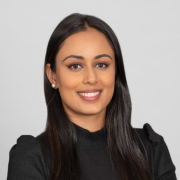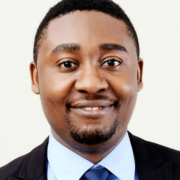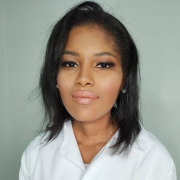How did you become interested in research relating to Hypertension?
Due to the rising incidence of hypertension and cardiovascular disease in my country
Describe your research & the program/lab (info of your supervisor) that you are in?
There has been increasing incidence of target organ damage in new patients presenting to our hospitals lately often with normal or mildly elevated blood pressure, further fuelling the limitations in relying on office BP measurements in decision making. This has stimulated renewed interest in ambulatory blood pressure measurement and research, an area still virgin in our country mainly due to very few centres offering ABPM services.
I have done some work on HIV related heart disease, due to the scourge of the HIV/AIDS pandemic in our continent and increasing cases of cardiovascular disease in these patients. Our centre is also one of the two Nigerian centres currently involved in ESC global registry of periparteum cardiomyopathy (PPCM), and we are also involved in research in arrhythmias in heart failure.
What do you consider to be your substantial scientific contribution so far (provide Pubmed PMID if possible)?
I. Isiguzo Godsent, Okeahialam Basil, Danbauchi Solomon, Odili Austin, Iroezindu Michael: Determinants of HIV-related cardiac dysfunction among adults in north-central Nigeria. Heart Asia 2013;0: 130–135. doi:10.1136/heartasia-2013-010284
II. Isiguzo Godsent, Okeahialam Basil, Danbauchi Solomon, Odili Austin, Iroezindu Michael. Contributions of Pulmonary Hypertension to HIV-related cardiac dysfunction. Indian Heart Journal 65 (2013) 644-649
III. Isiguzo G, Chundusu C, Onuh J, Muoneme A, Bitrus N, Okeahialam B. Endomyocardial Fibrosis: Seven decades later not much to offer the patients in the Nigerian setting, report of three cases and call for action. Journal of Hypertension. 30(s):e143, September 2012. doi:10.1097/01.hjh.0000420337.11110.b2 (Abstract)
IV. Okeahialam BN, Anya T, Chundusu CM, Isiguzo GC. Rare intra-cardiac aneurysms seen in Jos: report of two cases, West African Journal of Medicine. 32:(1); 76-8
V. Iroezindu MO, Daniyam CA, Isiguzo GC, Shehu NY, Akanbi MO, Agaba EI. Malaria control practices and treatment seeking patterns among adults in North-central Nigeria. Journal of Medicine in the Tropics 2012; 14 (2): 96-102.
VI. Iroezindu MO, Isiguzo GC, Young EE. Prevalence and predictors of impaired fasting glucose among Nigerian patients with hepatitis B virus infection. Diabetes Research Clin Pract. 98 (2012) 338-345
VII. Iroezindu MO, Agbaji OO, Daniyam CA, Isiguzo GC, Isichei C, Akanbi MO. Liver function test abnormalities in Nigerian patients with human immunodeficiency virus and hepatitis B virus co-infection. International Journal of STD & AIDS 2013. DOI: 10.1177/0956462412473889. 1-7
What is your favourite manuscript from a lab other than your own (provide Pubmed PMID if possible)?
The Causes, Treatment, and Outcome of Acute Heart Failure in 1006 Africans From 9 Countries. Results of the Sub-Saharan Africa Survey of Heart Failure
Albertino Damasceno, MD, PhD; Bongani M. Mayosi, DPhil, FCP(SA); Mahmoud Sani, MBBS;
Okechukwu S. Ogah, MBBS; Charles Mondo, MBChB, PhD; Dike Ojji, MBBS; Anastase Dzudie,
MD; Charles Kouam Kouam, MD; Ahmed Suliman, MD; Neshaad Schrueder, MBChB, FCP(SA); Gerald Yonga, Serigne Abdou Ba, MD; Fikru Maru, MD; Bekele Alemayehu, MD; Christopher Edwards, BS; Beth A. Davison, PhD; Gad Cotter, MD; Karen Sliwa, MD, PhD
Arch Intern Med.Published online September 3, 2012.doi:10.1001/archinternmed.2012.3310
What facilities are essential for your research?
- Ambulatory Blood pressure monitor
- Holter monitor
- Echocardiography machines
- Good medical statistical backup
Where do your research strengths lie? Why? What are your research weaknesses? How will you improve?
- Strong motivations from mentors, determination to contribute to scientific discuss, teaching /learning.
- Weakness : Paucity of needed infrastructure and opportunity for further training
- How to Improve: Perseverance and intensification of efforts at establishing meaningful collaborations.
Describe your unforgettable (proudest) moment in science, and the most challenging situation that you have had to overcome (lessons learnt) so far?
- ISH acceptance of my two abstracts for presentation at the 2012 Sydney ISH meeting.
- My inability to take up an offer of six months Fellowship in Echocardiography at University of Alabama echocardiography laboratory in March 2013 due to refusal of visa application.
At which conference did you first present? How was your experience?
Nigerian thoracic society meeting Abuja 2007, paper titled MDRTB in a patient with rheumatic valvular heart disease. The most interesting part of the presentation was answering questions raised from the presentation
What upcoming conferences will you be attending, and what is the furthest distance that you have travelled for a conference?
I hope to be at ISH 2014 meeting in Athens, and ATS 2014 meeting in Philadelphia.
The furthest that I have travelled to attend a conference is Australia for 2012 Sydney meeting and Seoul South Korea for the 2013 ISCEP teaching seminar.
How did you learn about ISH/NIN and its activities?
Following the 2009 ISH teaching seminar in Abuja Nigeria and through correspondence with Helen at the ISH Secretariat.
What area(s) do you wish to specialize in the future?
Preventive Cardiology/Interventional cardiology
Who is your role model in Science? Why?
1, Late Professor Oluwole Adebo ( Professor of cardiothoracic surgery UCH Ibadan Nigeria) Because of his zeal at impacting knowledge and desire at mentoring the younger generations in science of medicine and patient care.
2. Professor Basil Okeahialam of Jos University Teaching Hospital Nigeria, my supervisor and Boss, who taught me that success in Science, comes through perseverance and hard work.
What are your scientific goals? Advise for talented emerging scientists?
Self improvement so as to be better positioned to positively influence my students and younger colleagues in offering the best of care to our patients.
Work hard at seeking knowledge; identify mentors who will ultimately mould one into being scientifically relevant in hypertension/cardiovascular disease care.





















